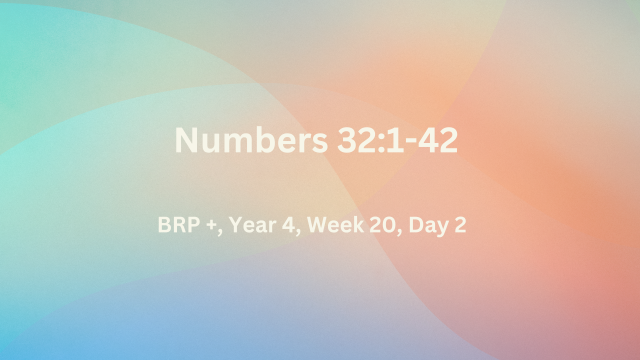Numbers 32:1-42
Q.1. What was the reason why some of the tribes asked to settle east of Canaan? How did Moses interpret their plans? – (Num.32:1-15)
This record commenced with the reason for the request by the tribes of Reuben, Gad and the half tribe of Manasseh who –had an exceedingly large number of livestock. When they saw the land of Jazer and the land of Gilead was indeed a place suitable for livestock (Num.32:1). Moses and the other leaders reacted to their plans, because they felt that these tribes were abandoning their tribal brothers, before the completion of the conquest of the land that God had promised to Abraham, Isaac, and Jacob (Num.32:2-7 & 11). He likened their request to the discouragement of the spies that had consigned them to forty years in the wilderness. (Num.32:6-15). God had expressed His anger against the Israelites previously (Num.32:10, 13-14).
Q.2. What promise did these tribes make to Israel? How did Moses respond? What inheritance did these tribes receive in the Promised Land? – (Num.32:16-33)
In response, these tribes explained that they would settle their women and children east of Jordan, and then help the other tribes to take possession of the land (num.32:16-17). Hearing this, Moses agreed that if they would do as they promised – 21 and all of you armed men cross over the Jordan before the Lord until He has driven His enemies out from before Him, 22 and the land is subdued before the Lord, then afterward you shall return and be free of obligation toward the Lord and toward Israel, and this land shall be yours for a possession before the Lord (Num.32:21-22). That promise to Abraham included this region, plus a great deal more that they have never possessed (c.f. Gen.15:18-21). It was about half the land of Canaan in area and contained some of the best agricultural river flats available. This was to be their inheritance. The details were duly documented for Eleazar the priest, and Joshua, the successor of Moses (Num.32:28-32), provided they did what they had promised.

